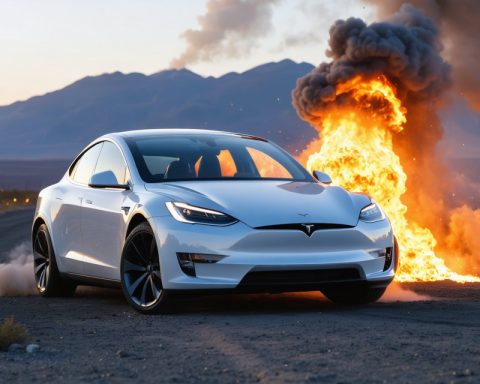China Stresses Collective Negotiations to EU Over Electric Vehicle Tariffs
China emphasizes the importance of collective negotiations to the EU regarding electric vehicle tariffs. Following multiple unsuccessful rounds of discussions in Brussels, both sides continue to struggle to find common ground on planned tariffs for electric vehicles.
EU’s Decision on Tariffs
The EU recently voted to increase tariffs on electric vehicles from China by up to 45%, citing alleged unfair subsidies provided to Chinese car manufacturers. In response, China has disputed these claims and threatened retaliatory tariffs on European dairy, brandy, pork, and automobile sectors.
Industry Representation in Negotiations
Carmakers, including European companies operating in China, have entrusted the China Chamber of Commerce for Import and Export of Machinery and Electronic Products to present a price proposal to the EU on their behalf. This proposal serves as the basis for the ongoing negotiations between the two parties.
Ongoing Disagreements
Despite multiple negotiation sessions since September 20, significant disagreements persist between China and the EU. China has requested the EU to promptly dispatch a technical team for further discussions aimed at finding a mutually acceptable solution. The Chinese government emphasizes that conducting individual negotiations with carmakers could hinder the overall negotiation process and erode trust.
While both China and the EU continue to engage in discussions, reaching a consensus on electric vehicle tariffs remains elusive as differences persist on crucial issues. The future of trade relations in the electric vehicle sector between these economic powerhouses hangs in the balance.
China-EU Dispute Intensifies Over Electric Vehicle Tariffs
Amid the ongoing negotiations between China and the EU regarding electric vehicle tariffs, new developments have brought further complexity to the situation. Despite efforts to find common ground, the two parties remain at odds over key issues related to trade in the electric vehicle sector.
Key Questions and Answers:
1. What are the main sticking points in the China-EU negotiations over electric vehicle tariffs?
– The main point of contention is the EU’s decision to increase tariffs on electric vehicles from China by up to 45%, accusing Chinese manufacturers of unfair subsidies. China refutes these claims and has threatened retaliatory tariffs on European goods.
2. What are the challenges associated with the negotiation process?
– One of the challenges is ensuring industry representation in the negotiations, with carmakers relying on the China Chamber of Commerce for Import and Export of Machinery and Electronic Products to advocate on their behalf. Disagreements on subsidy practices and market access further complicate the talks.
3. What are the advantages and disadvantages for both China and the EU in this dispute?
– Advantages for China include protecting its domestic industry from what it views as unfair tariff hikes, while the EU aims to address alleged subsidies distorting the market. However, the dispute risks escalating into a broader trade conflict, affecting not only the electric vehicle sector but other industries as well.
Recent Developments:
Recent reports suggest that China has expressed concerns over the EU’s unwillingness to engage in collective negotiations, emphasizing the importance of a unified approach to resolve the tariff issue. The EU, on the other hand, insists on addressing concerns about market access and subsidy transparency before committing to any agreements.
Related Links:
– China’s Official Web Portal
– European Commission Official Website








